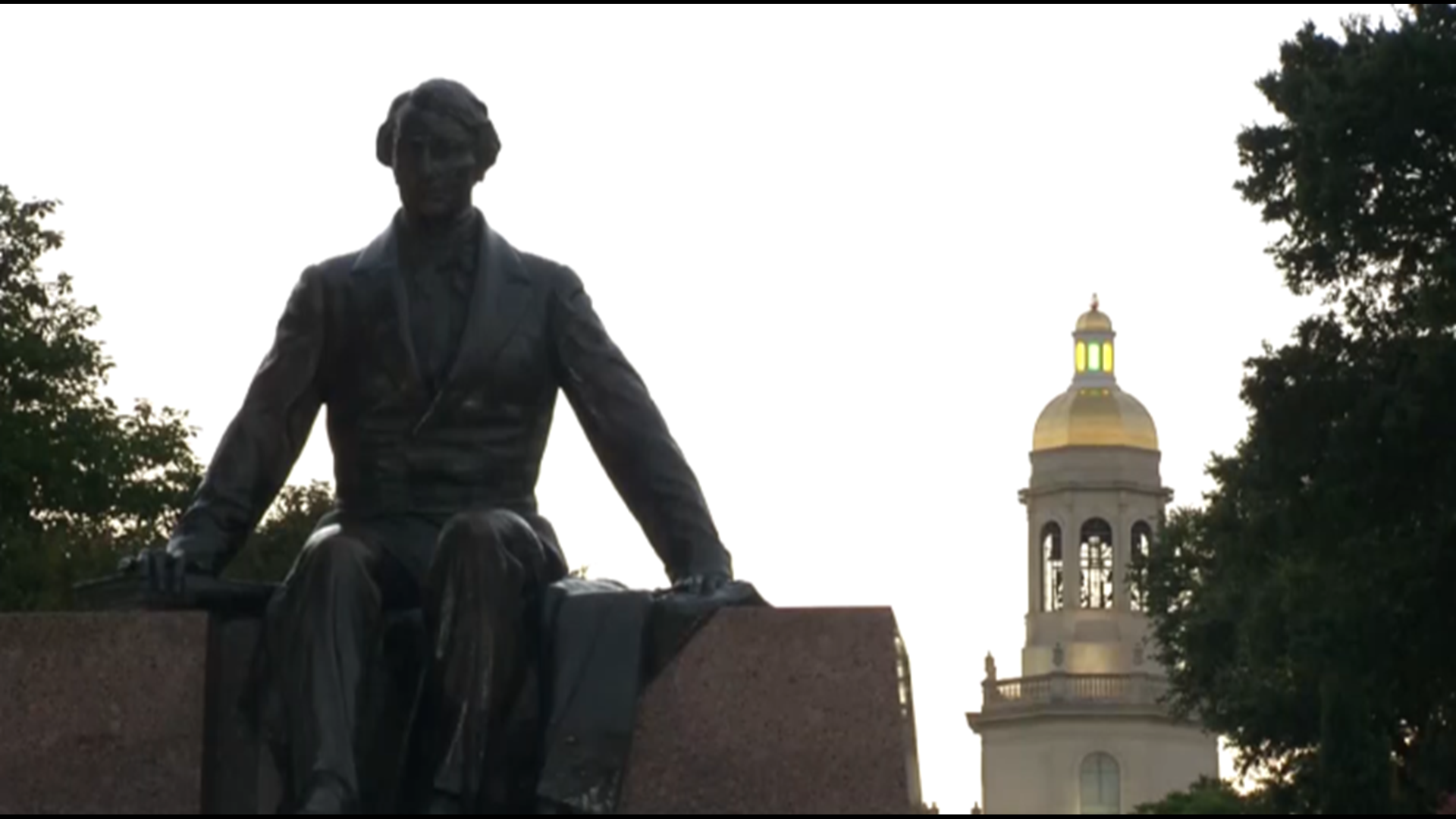WACO, Texas — The Baylor University Board of Regents announced its unanimous approval of the “Resolution on Racial Healing and Justice” on June 26 of last year.
The board then created a Commission on Historic Campus Representations that were charged with reviewing the historical record and context of the University and its early leaders to fully uncover the story of Baylor's founders and the extent of their connection to slavery. The commission finished its work in 2020.
That report was released to the public on Tuesday. It revealed, as stated on a Baylor University website, "Several key historical facts that previously have not been acknowledged."
The full report is available to the public, but there are a number of findings that the university highlighted.
Judge Robert Emmett Bledsoe Baylor, the university’s namesake, was a slaveholder himself and in 1860. He owned 33 slaves.
According to the report, "These slaves formed a significant portion of Judge Baylor’s wealth, which was listed as $24,000 in real estate and $35,000 in personal estate in 1860."
He did not serve in the Confederate army, but he did continue to serve as a judge in Texas during the Civil War.
The report states, "Judge Baylor can also be said to have supported the cause of the Confederacy, broadly speaking."
Founders William Tryon and James Huckins were slaveowners while serving as employees of the American Baptist Home Mission Society. After tensions between Baptists in the north and south over slavery reached an impasse, the Southern Baptist Convention was established in 1845. Tryon and Huckins were appointed by the Domestic Mission Board of the Southern Baptist Convention.
The report states, "As educated men, the founders clearly knew the arguments against slavery, yet they nevertheless chose to support its continuation and expansion."
The report also revealed that, of the 15 men that served as the Universities first board of trustees in 1845, 11 were slave owners.
The report provides a long list of recommendations which include moving some monuments, updating markers and displays, renaming university spaces and adding monuments to honor in honor of the “unknown enslaved" which the report states, "Were instrumental in constructing the original campus," among other recommendations.
University leaders have not indicated how soon the recommendations would be acted on or how they would be acted on. Baylor University President Linda A. Livingstone, Ph.D., and Board of Regents Chair Mark Rountree spoke with the media on a 30-minute zoom call Tuesday.
"We want this to be viewed as really a representation of our Christian mission that we are willing to look honestly at our history, the challenging parts of our history, in addition to the good parts that we have shared over the years since the university was founded, and then use it as an opportunity for redemption, reconciliation, and healing on our campus," Livingstone said. "We hope that folks will approach this report with open hearts and open minds."
6 News asked how far the university would go to make changes after seeing the report.
"The board has delegated to the administration the responsibility to begin working on an implementation plan in consideration of the recommendations that were in the report. We will look at those thoroughly, at the intent behind them, and will look at how best to consider their implementation," Livingstone said.
Neither Livingstone nor Rountree could give any specifics of what actions the university might take. Rountree said the report gave the board, "A wide degree of latitude" on how to implement recommendations. When it came to questions of what would not be changing, the university leaders were more specific.
"We are not going to change the name of the university," Livingstone said.
"The 26 member commission obviously believed that moving the Judge Baylor statue was not necessary to account for or represent his history," Rountree said.
The University did not provide any timeline for changes recommended by the commission.
Baylor did announce on Tuesday plans to erect statues in recognition of the first two black graduates who helped integrate the university, Rev. Robert Gilbert, B.A. ’67, and Mrs. Barbara Walker, B.A. ’67. The statues would be placed in front of the Tidwell Bible Building.
Also on KCENTV.com:

